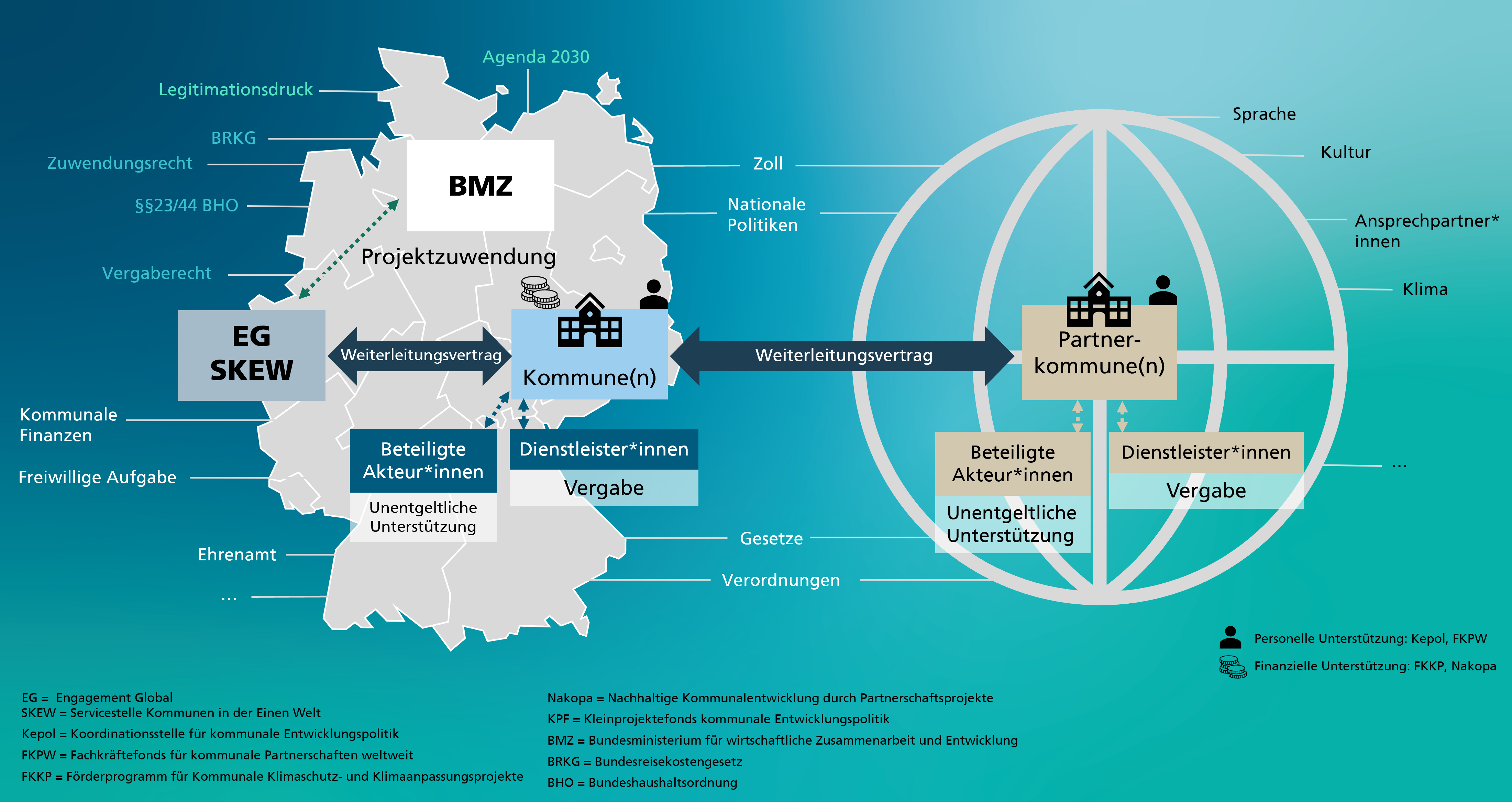Background: Municipal development cooperation
Development cooperation serves the sustainable improvement of economic, social, ecological and political conditions worldwide. The 2030 Agenda and the seventeen Sustainable Development Goals of the United Nations make it clear that global challenges can only be solved with the help of all stakeholders - at state (municipal, regional, federal), civil society, economic, scientific and individual levels. In Germany, civil society, governmental and non-governmental organizations are involved in development cooperation. Municipal development cooperation complements the work of the two major governmental implementing organizations, the Deutsche Gesellschaft für Internationale Zusammenarbeit (GIZ) and the Kreditanstalt für Wiederaufbau (KfW).
Project description: Fraunhofer IMW study analyzes challenges in project funding and proposes possible solutions
Recent research indicates that the funding process and management of grant funds in municipal development cooperation face a number of challenges. Since 2013, German municipalities have been able to receive financial support for municipal partnership projects abroad under the "Engagement Funding" program of the German Federal Ministry for Economic Cooperation and Development (BMZ).
The study of the Innovation Policy and Transfer Design Unit at Fraunhofer IMW analyzes the challenges of this project funding from the perspective of municipalities, funding policymakers and funding management. A total of 26 experts in municipalities, funding policy, funding management and funding law were interviewed. Document analyses and participant observations at qualification seminars for applicants by the Service Agency Communities in One World (SKEW) at Engagement Global (EG) supplement the results from guideline-based interviews.


